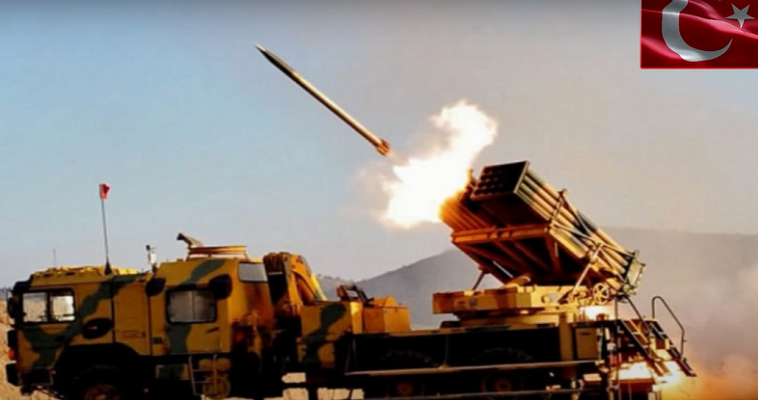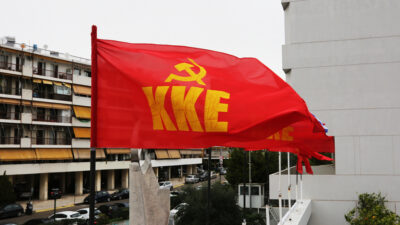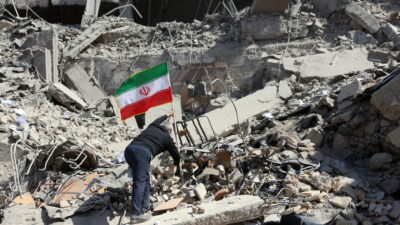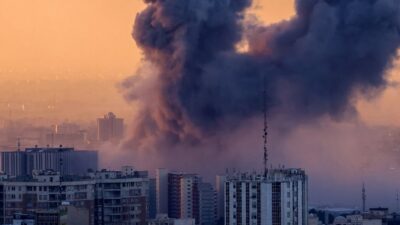Kostas Melas: Turkish military industry: success story or illusion?
21/07/2020
The Turkish military industry can be said to comprise three groups of companies, with separate fields of specialization. The first group of industries, the Turkish Armed Forces Foundation (TSKGV), has been under the control of the army for the last 30 years and is commanded by retired generals. It includes many companies, including the most technologically advanced and pioneering in their fields.
Among these we couldmention: Aselsan (communication technology, radar, and information technology), Roketsan (production of rockets and missile systems), Havelsan (electronic warfare), Isbir (electrical systems) and Aspilsan (production of military batteries). Since December 2017, the group is under Erdogan’s control. The second group consists of joint ventures.
These are companies that work closely with respective foreign companies (partners) for the construction of parts, or final products. They emerged in early 2000 as competitors to the Turkish Armed Forces Foundation, with no significant results. We may mention the most important: Nurol Defense Industry, MIKES and Koc Holding’s Otokar. The third group of companies (this is a rising group) is run by people close to and loyal to Erdogan.
According to journalist Metin Gurcan (Al Monitor), there are three emerging large companies: Baykar Makina belonging to the family of Erdogan’s son-in-law, Selcuk Bayraktar, BMC belonging to the Ozturk family and Ethem Sancak, a member of the Executive Council of the Justice and Development Party (AKP) and Albayrak Group-owned Tumosan. The most ambitious of these appears to be BMC, which in 2019, managed to enter the list of the top 100 companies worldwide in terms of sales (85th place, with $554.18 million in sales).
The same list, in 2019, contained four more Turkish defense companies: Aselsan (52nd), Turkish Aerospace Industries (69th), STM Savunma Teknolojileri Muhendislik ve Ticaret A.S. (85th) and Roketsan A.S (89th). It is the leading company in the production of buses, trucks, railway systems, armed vehicles and armored vehicles. Sancak owns 25% of the group, the Ozturks family 25.1%, and the remaining 49.9% owned by the Qatar Armed Forces Industry Committee.
The dominance of the defense industry
The defense industry seems to be the new privileged sector of the Turkish economy, as the previous one, the construction industry, has suffered a major contraction and does not meet the visions of the Turkish president. There are other reasons of course:
- The attempt to manipulate public opinion and its aversion to the problems created by the financial crisis
- The diplomatic game, in which the Turkish defense industry must play an important role, directly expressing the power of Erdogan’s Turkey. This goal is directly related to Turkey’s gradual independence from foreign arms imports and its replacement by domestically produced weapons. According to available data, in the period 2015-2019, its imports decreased by 48.0%, although during this period Turkish forces have been involved in military conflicts (Syria, Libya). It is estimated that domestic production covers 68.5% of the needs of the Turkish Armed Forces from 24.0% in 2002.
- Exports of defense equipment to countries such as Qatar, Pakistan, Ukraine, Uzbekistan, Malaysia, Bangladesh and some African countries (Mauritania, Burkina Faso, Ghana, Senegal, Chad), all of Islamic orientation (except of course Ukraine). The goals, apart from the economic motivation, are also connected with the effort to influence all these countries and their integration into the Turkish sphere of influence.
Grandiose goals
But most of these countries have little share in Turkey’s exports of weapons systems and defense equipment. The main importers of weapons systems from Turkey in 2019 are the following countries (in millions of dollars): USA (600), Germany (190), Oman (180), Qatar (175), United Arab Emirates (100), Netherlands (60), United Kingdom (40), India (40), Poland (30), and France (20), (according to Turkish Exporters Union).
Also, Turkey’s exports, in the period 2015-2019, account for 0.8% of world exports, an increase of 80.0% compared to the previous five years (2010-2014). It is obvious that exports to the developed countries of the West are mainly part of the final products after co-production agreements. Exports to the developed economies of the West account for about 50.0% of Turkey’s total exports, showing its dependence on the markets (through government agreements) of these countries.
Of course, the goals of the 11th Development Plan of the Presidency of the Turkish Defense Industry (SSB), until 2023, are at least grandiose, not to say unrealistic. According to the 11th Development Plan, the Turkish defense industry should record, by 2023, a turnover of 26.9 billion dollars, from 10.9 billion in 2019 (an increase of 155%, or 16 billion dollars in absolute numbers).
Unrealistic plans
Exports should increase from the three billion dollars in 2019 to 10.2 billion in 2023 (an increase of 240%, or seven billion in absolute numbers), while workers in the industry should increase from 44,700 to 79,300 people (an increase of 77.40%, or 34,600 people in absolute numbers).
Finally, the rate of coverage of the needs of the Turkish Armed Forces and security forces with systems of domestic design, development and production, should increase from the current 65% to 75% in 2023. The long-term planning of the Presidency of the Defense Industry Turkey (SSB) is at least unrealistic: by 2053 absolute self-sufficiency in weapons systems and exports worth $ 50 billion!
The unrealistic dimension of design is first and foremost about the long-term design itself (no one can plan for such a long time). In addition, the recent experiences of “small” countries that have attempted to aggressively enter arms exports (Brazil, Sweden) have not been successful. Also, this design constantly requires new investment capital, production of new technology, new markets in a highly competitive sector, political alliances and a stable economy.
Difficulties for the Turkish defense industry
Turkey faces a number of challenges that create great difficulties in achieving all of the above. In particular, in principle, it depends on a number of strategic raw materials, necessary for the manufacture of the final products (for example it depends on the import of specialized steel from Finland). It faces the flight of many craftsmen and skilled personnel, who are leaving Turkey due to the economic crisis, but also the constant restriction of democratic freedoms and rights.
In addition, it faces a double crisis. A crisis in its foreign policy, which makes it unimaginably difficult to cooperate on the military and technological level, but also a deep economic crisis that constantly weakens the currency and raises serious concerns among foreign investors, many of whom are leaving Turkey (something that deprives Turkish industry of necessary resources, on which the economic “miracle” of Erdogan was built).
Finally, we must mention the technological weaknesses it faces (mainly in the production of engines that are the key factor in advanced weapon systems). Cooperation with Ukraine on the import of engines in order to implement the AKINCI drone program is a prime example.





